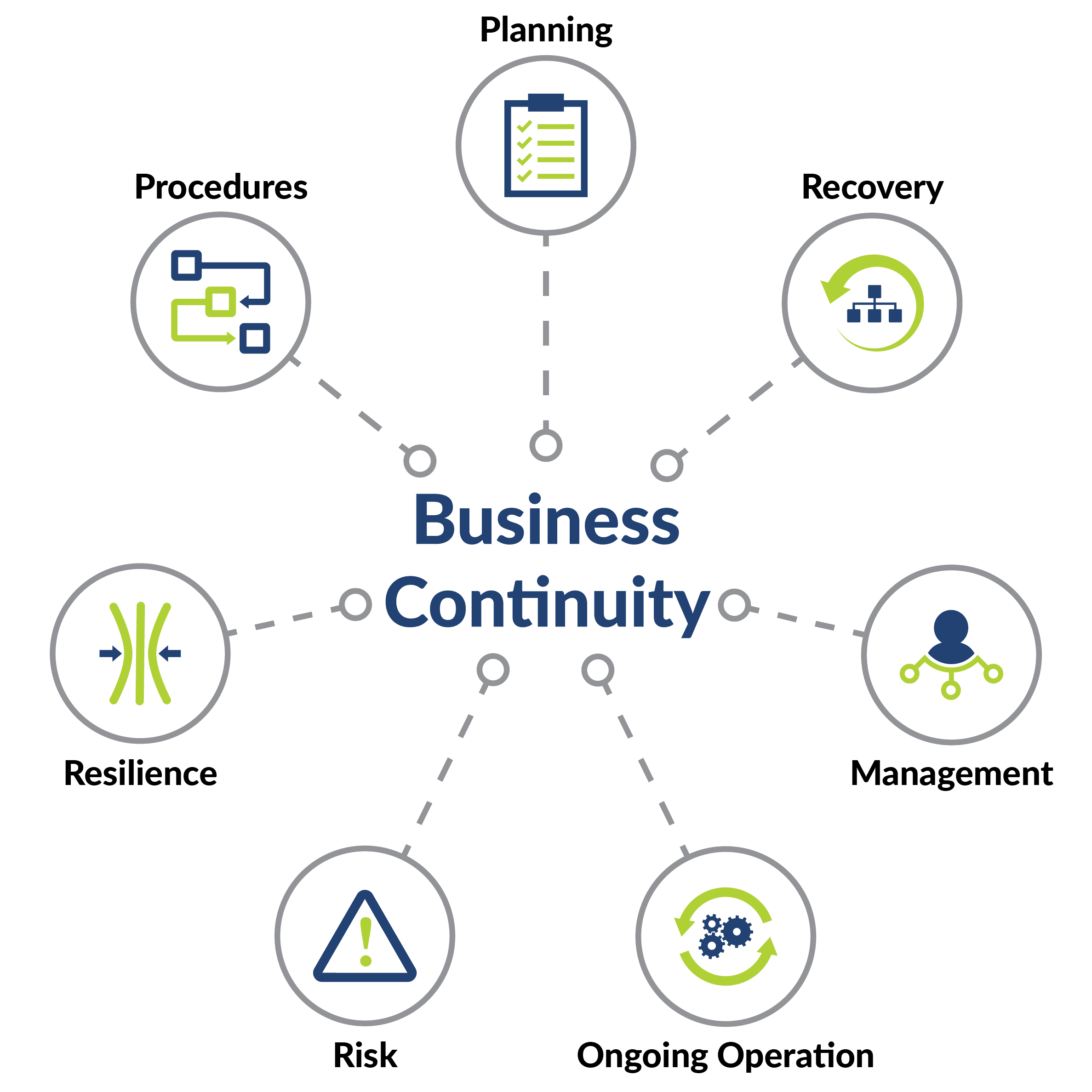Business Continuity Plan

The Covid-19 pandemic has certainly changed the world. Perhaps it will also change the way how we live and work in the future. It has also changed how more extensive we have applied digital technology in our current work and living. It is therefore paramount for each business to have a business continuity plan (BCP) as at the end of the day, businesses will be affected by any kinds of disruptions to its operations.
However important it may sound, the BCP is surprisingly still a topic rarely explored and discussed. For a start, to clamp down the COVID 19 spread, numerous governments had implemented and extended curfews and lockdowns, domestically and internationally, from India to Italy, and that practically means that many sorts of businesses and personal activities would have to stop, with the exception of a few critical activities such as logistics, supply chain, foods and health care.
These will have deep impacts as majority of businesses will have to shutter down with no sales income while maintaining fixed overhead. The consequences are crystal clear, a nation can ill afford to prolong the curfews and lockdowns without incurring some economic, social and political repercussions. Sooner or later, businesses will run out of cash and job losses will shoot up. This will cause a downward spiral effects on the economy making a recovery even harder.
Therefore, it is prudent that governments took some responsibilities and immediate actions to alleviate the short-term pains on businesses. These could be in the form of cash hand out, tax breaks, and even expediting and or expanding state procurement to create additional demands.
This is perhaps best exemplified by Singapore government who had rolled out Supplementary Budget to cope with the rapidly evolving COVID 19 impacts. As of todate, the evolving budget is already worth close to SGD 55 Billion which is about 11% of Singapore’s GDP. The additional budget is allocated just to help businesses, enterprises and individuals to cope with the COVID 19 impacts.
Other places and countries might not be as lucky and as such, businesses and enterprises need to stay vigilant and to have a business continuity plan in place to deal with any disruptions. This could involve remote working for staffs, virtual commerce (e-commerce) for shoppers, delivery and logistics functions getting mapped out. As such, digital technologies in this day and age couldn’t be all the more important now to economy, social and political existence. The devil is in the details, and in the face of disruptions, it is therefore the responsibility of each business and enterprise to ensure that they were worked out so that there is a plan in place, the business continuity plan.
https://straitsjournal.com/business-continuity-plan/Digital TechnologyGlobalLatest ThinkingPoliticsbudget,business,coivd 19,continuity,coronavirus,economy,pandemic,Plan,Singapore The Covid-19 pandemic has certainly changed the world. Perhaps it will also change the way how we live and work in the future. It has also changed how more extensive we have applied digital technology in our current work and living. It is therefore paramount for each business to...escveritas [email protected]AdministratorThe Straits Journal




Leave a Reply